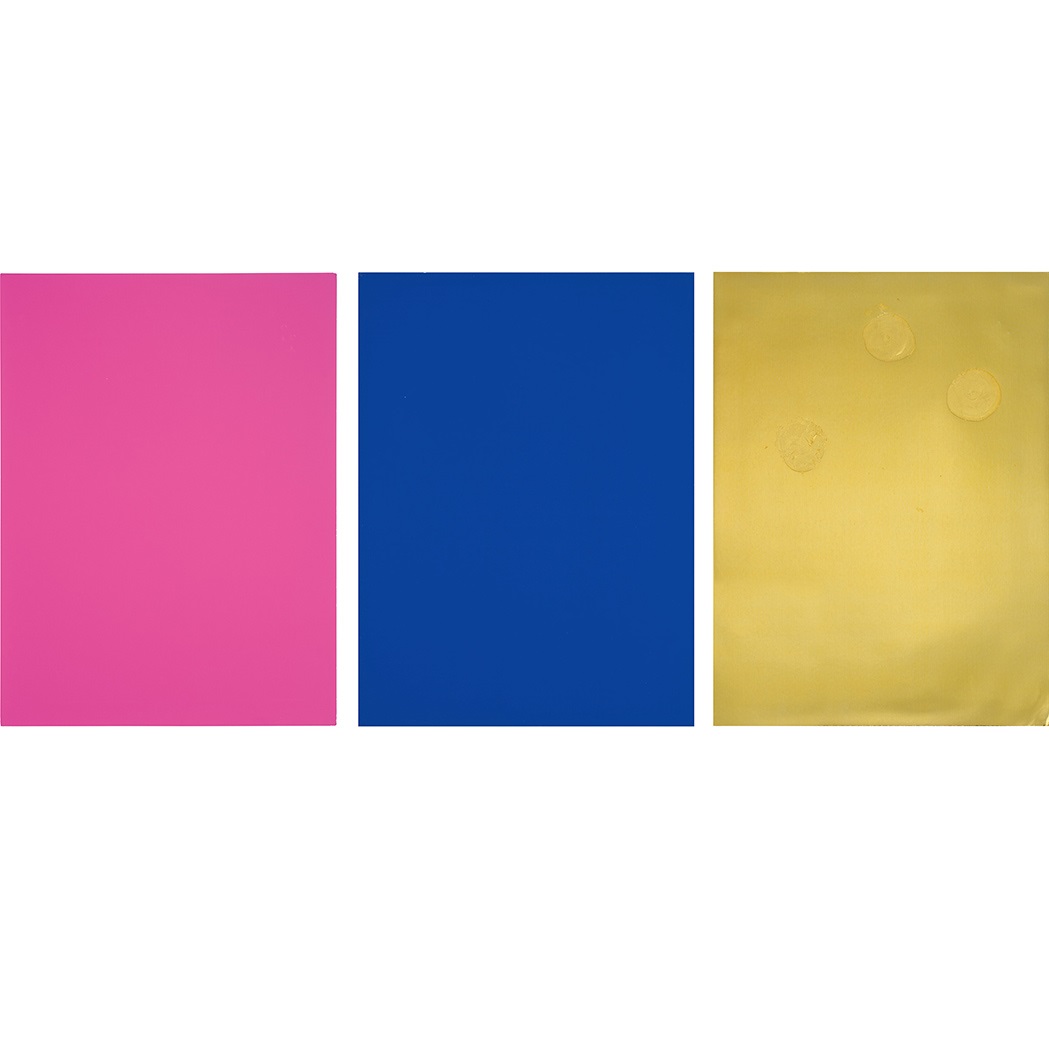
Yves Klein
French, 1928-1962
Yves Klein was a French artist whose brief but influential career helped shape the direction of postwar European art. Born in Nice, he formed early creative ties with artist Arman and singer Claude Pascal, laying the foundation for a practice that would challenge traditional artistic boundaries. Deeply interested in philosophy, mysticism, and the void, Klein envisioned art as a vehicle for transcending material limitations—an idea that would underpin his radical approach to color, space, and form.
In 1957, Klein entered what would become his defining “blue period,” developing a proprietary ultramarine pigment known as International Klein Blue (IKB). Working with a chemical retailer, he created a medium that resisted fading and retained its raw intensity—a hue that became both subject and symbol in his work. He applied IKB to canvases, sponges, and even human bodies, orchestrating a series of “Anthropometries” in which nude models became living brushes. As he described it: “Blue is the invisible becoming visible. Blue has no dimensions, it is beyond the dimensions of which other colors partake.”
A key figure in Nouveau Réalisme and an early practitioner of conceptual art, Klein produced monochromes, performance-based works, and ephemeral installations that redefined the role of the artist. Though his career was cut short, his legacy remains central to the conversation around immateriality, authorship, and the limits of visual language in modern art.